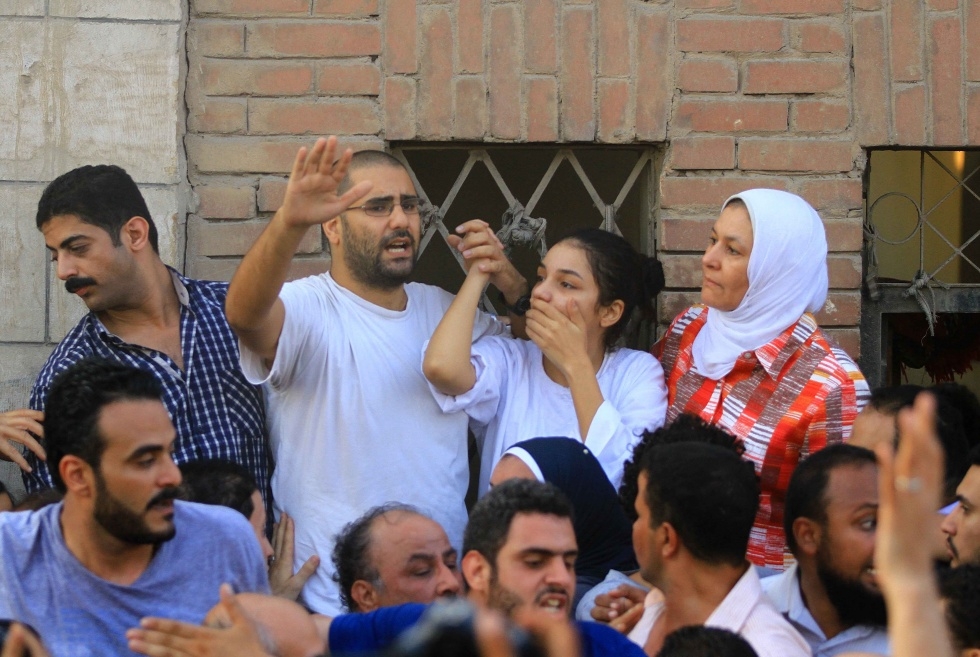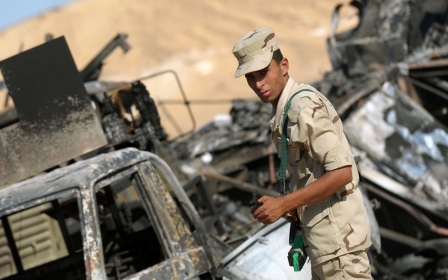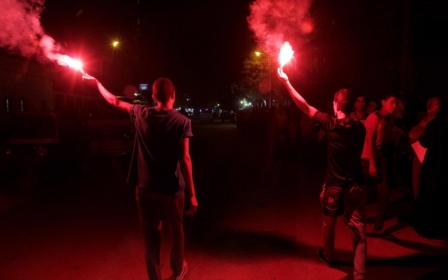Egyptian human rights activist hits back after peace prize nomination withdrawn

Alaa Abdel Fattah, the Egyptian human rights activist seen as one of the leading figures of the Arab Spring, has spoken out after his nomination for the Sakharov Prize for Freedom of Thought was withdrawn following revelations of tweets made in 2012 apparently calling for the deaths "of a critical number of Israelis."
The European United Left/Nordic Green Left (GUE/NGL) – a left-wing political group in the European Parliament – originally nominated Abdel Fattah for the award, which “honours individuals who combat intolerance, fanaticism and oppression”, along with two other prominent bloggers.
However, on 1 October it withdrew its nomination citing a tweet by Abdel Fatah in 2012 in which they claim he called for the killing of “a critical number of Israelis.”
“Needless to say, we cannot and will not tolerate such behaviour,” the group said in a statement.
“This call goes against all our principles as well as the criteria for nomination for the Sakharov Prize. Our group has always favoured debate and political confrontation between peoples, including the Israeli people.”
“It is in this context that our group has decided to withdraw its proposal.”
According to the American Jewish newspaper Algeimeiner, in 2009 Abdel Fatah (who they refer to as "anti-Semitic") tweeted: “One should only debate human beings. Zionists and other imperialists are not human beings”. In 2010, he then also tweeted: “Dear Zionists please don’t ever talk to me, I’m a violent person who advocated the killing of all Zionists including civilians.”
On Monday, Abdel Fatah wrote a rebuttal on the independent online Egyptian newspaper Madr Masr, in which he expressed his “surprise” at the withdrawal of the nomination.
“The president of the GUE/NGL has now sent a clear message to the Egyptian authorities that whatever international solidarity and support I have is fragile - easily destroyed with a tweet,” he wrote.
He said that if taken out of context, the tweet cited could seem “shocking” but said that it was part of a "private conversation” that took place during Israel’s Operation Pillar of Defence assault on Gaza in 2012.
“The tweet stated what seems to be the basic strategy of most national liberation movements, especially those that opt for armed resistance: To make the price of occupation/colonisation/apartheid too expensive for the society that supports it,” he wrote.
“Since this was during a time of war, I had armed resistance in mind. Think of Vietnam or Algeria; many would say this is exactly what happened: After a critical number of casualties in asymmetric wars, the civilian population supporting the occupier refused to continue its support - despite the fact that the casualties suffered by the society resisting colonisation were massively higher.”
He also cited a 2012 debate for the New Arab Debates where he called for a single democratic state in historic Palestine, and said he was “completely reconciled to a Middle East with Israel” but opposed the “Apartheid” system in the country.
The Sakharov Prize – named after Soviet dissident Andrei Sakharov – has previously been awarded to Pakistani activist Malala Yousafzai and Burmese human rights campaigner Aung San Suu Kyi.
Alaa Abdel Fatah was among the most prominent secular (he previously listed his religion on Facebook as "null") activists during the 2011 demonstrations against former strongman Hosni Mubarak and became an online superstar through social media and his blog, which he co-founded with his wife Manal Hassan.
The son of the late human right lawyer Ahmed Seif El-Islam Hamad and nephew of famous novelist Adhaf Soueif, he has been involved in activism since his teens.
Having been imprisoned many times, Abdel Fatah was last released from jail on bail in September and faces a retrial after originally being sentenced to 15 years in jail for taking part in an illegal assembly.
Stay informed with MEE's newsletters
Sign up to get the latest alerts, insights and analysis, starting with Turkey Unpacked
Middle East Eye delivers independent and unrivalled coverage and analysis of the Middle East, North Africa and beyond. To learn more about republishing this content and the associated fees, please fill out this form. More about MEE can be found here.




